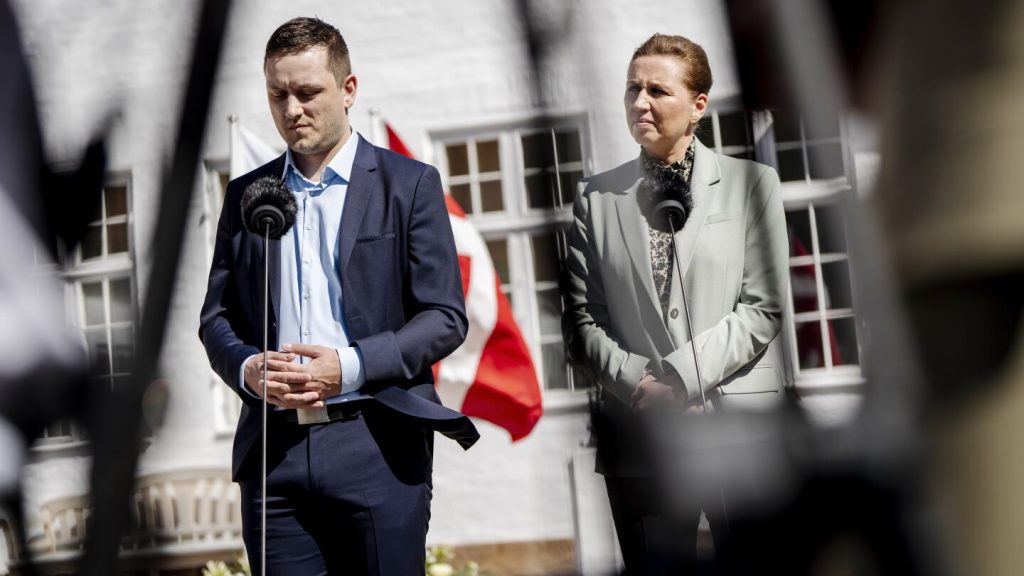COPENHAGEN, Denmark (AP) — Denmark and Greenland on Wednesday officially apologized for their roles in the historic mistreatment of Greenlandic Indigenous girls and women, including forced contraception, in cases that date back to the 1960s.
Jens-Frederik Nielsen, the prime minister of Greenland, said the issue represented “a dark chapter in our history.” Danish Prime Minister Mette Frederiksen said that although the past could not be changed, “we can take responsibility.”
Nearly 150 Inuit women last year sued Denmark and filed compensation claims against its health ministry, saying Danish health authorities violated their human rights when they fitted them with intrauterine contraceptive devices, known as IUDs or coils. The devices, fitted in the uterus, prevent sperm from fertilizing an egg.
Some of the women — including many who were teenagers at the time — said they were not told details about the procedure or did not give their consent. Danish authorities last year said as many as 4,500 women and girls — reportedly half of the fertile women in Greenland at the time — received IUDs between the 1960s and mid-1970s.
The alleged purpose was to limit population growth in Greenland by preventing pregnancies. The population on the Arctic island was rapidly increasing at the time because of better living conditions and better health care.
The governments’ apology, issued in a joint statement, comes ahead of a report expected next month and related to an investigation into the mistreatment.
“We cannot change what has happened. But we can take responsibility,” Frederiksen said in the statement. “That is why I would like to say, on behalf of Denmark: Sorry.”
Frederiksen said her apology also included Denmark’s systematic discrimination and other failures and mistreatments against Greenlanders “because they were Greenlanders.” She acknowledged that the forced contraception led to physical and psychological harm.
Nielsen said the government of Greenland, which took over control of its health sector from Copenhagen in 1992, had acknowledged its own responsibility in the forced contraception cases and plans to award compensation to the victims.
“Far too many women were affected in a way that left deep imprints on lives, families and communities,” he wrote in a social media post. “I feel for the women and their loved ones. And I share in their sorrow and anger.”
“It’s sad that an apology only comes now — it’s too late and too bad,” he said.
Mads Pramming, a lawyer representing the women, welcomed the apology but said the case was far from over. What matters is whether the government recognizes that the women’s human rights were violated and offers compensation, he said.
“Today they decided to make an apology, to apologize formally. And that’s a big thing, I think,” he said. “But they haven’t yet said anything about the lawsuit, and potentially they won’t agree to the lawsuit.”
He added that he was hopeful the apology represented the start of an attempt to repair relations between Denmark and Greenland.
Greenland, which is part of the Danish realm, was a colony under Denmark’s crown until 1953, when it became a province in the Scandinavian country. In 1979 the island was granted home rule, and 30 years later Greenland became a self-governing entity.
Dwayne Menezes, managing director of the Polar Research and Policy Initiative, said the case highlights centuries of Danish policies that dehumanized Greenlanders and their families.
The policies included the forced contraception, as well as the removal of young Inuit children from their parents to be given to Danish foster families for reeducation and controversial parental competency tests that resulted in the forced separation of families.
He said that while most people believe colonialism and its abuses occurred in the “distant past,” the victims of the forced contraception are still alive.
“If we don’t recognize the important lesson this teaches us, we will not recognize in time the manifestations and recurrences of such divisive and dehumanizing policies when they resurface,” he said.


